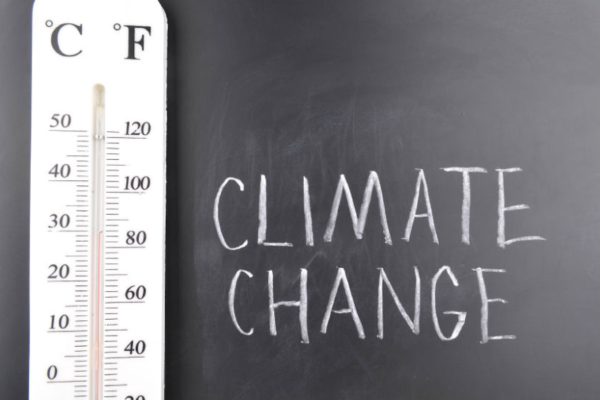Climate change poses a more significant threat to global security than the low probability event of a ground war with China. And yet, we spent $590 billion on defense in 2017 and maintained readiness against the unlikely prospect of a large conventional war, but we continue to falter when addressing climate change.
It’s time for conservatives to recognize our constitutional mandate to provide for the common defense by addressing the rising threat of climate change.
There are three primary explanations that are used to justify inaction on climate change: 1) The science is uncertain, 2) We cannot afford to address the problem, and 3) Other counties will keep polluting, so our actions won’t matter. All of these explanations for inaction can be dismissed once we recognize the security threat of climate change.
First: Is the science settled? It does not matter — we have an obligation to be prepared to defend the country, even if the threat is uncertain.
For more than a decade, national intelligence and defense agencies have sounded the alarm on climate change and the potential impact it might have.
In 2017, in unpublished written testimony, Secretary of Defense James Mattis stated in unequivocal terms that climate change is real and is a threat to national security interests.
In February, the U.S. intelligence community published its “Worldwide Threat Assessment.” In it, Daniel Coats, the director of national intelligence, acknowledged the potential for climate change to cause humanitarian disasters and conflict. That same month, a panel of retired military officers published a report detailing the threat of sea level rise and the potential to inhibit the U.S. military’s mission.
The concerns expressed by our military leaders have created a growing consensus: the threat of limate change is real, it poses a significant threat, and now is the time to act regardless of the uncertainty in modeling the impacts of climate change.
Second: Can we afford to act? Yes.
In the coming decades, we will collectively spend approximately $2 trillion to maintain our electrical grid. Upgrading the existing grid to a near-zero-carbon solution would cost approximately $2 trillion to $3 trillion. We could upgrade the grid without costing ourselves a penny more than the status quo if we start working now.
Compare the cost of upgrading our grid with the estimated $5.6 trillion we will have spent fighting wars since 2001.
Why are we unable to upgrade domestic infrastructure?
We already have the technology that could deliver an affordable, decarbonized electricity sector. Challenges remain to decarbonize industrial, commercial and residential energy consumption, but most of these hurdles are economic challenges, not technological barriers.
Addressing these challenges is exactly what the United States should be investing in.
Third: Should emissions from other nations influence whether the United States works to address climate change? No.
Although this concern is real, we should recognize that the U.S. has led the way on protecting naval shipping lanes around the world for decades. Other countries have arguably been free-riders throughout this time, but we are all better off for the leadership role that the United States has taken. The free-rider problem should not be an excuse for inaction.
Despite the uncertainty in the timing and location of military threats, we are always ready for war just in case. The same approach of readiness should be used for climate action, because despite the uncertainty in how climate change could impact the world, the threat on the horizon is real and has the potential to be catastrophic.
Throughout the Cold War, people from both sides of the aisle were able to support investment in domestic capabilities to counter the rising existential threat of the Soviet Union. We have now reaped immeasurable benefits from national highways, spin-offs from landing men on the moon, and helping set the educational foundation that led to the computer revolution.
We will likely reap similar rewards by investing in technologies that can deliver a decarbonized future.
It is hard to measure the return on investment for dollars invested in defense. It will also be hard to measure the return on investment for combating climate change. Nevertheless, the federal government has a constitutional mandate to defend the United States against threats, both foreign and domestic.
Todd Davidson is a research associate at the University of Texas at Austin Energy Institute.
A version of this op-ed appeared in Fortune.
To view more op-eds from Texas Perspectives, click here.
Like us on Facebook.




